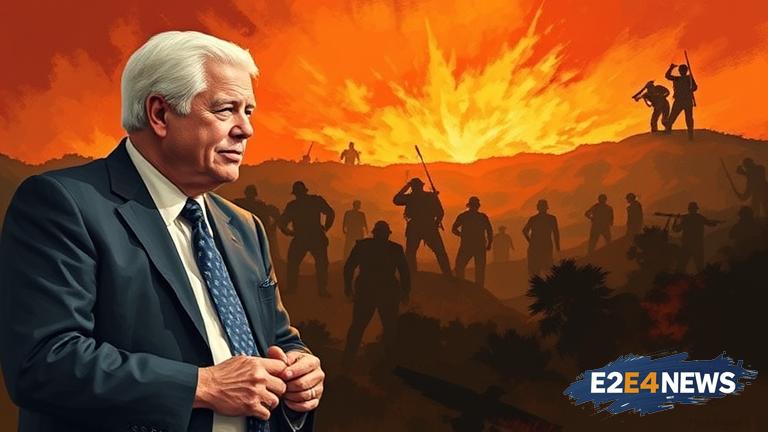The Carter Center, a renowned organization founded by former US President Jimmy Carter, has been at the forefront of promoting democracy and human rights globally. However, their recent involvement in the political affairs of Guyana has sparked intense controversy. The center’s actions have been perceived as an attempt to influence the country’s political trajectory, with many arguing that they have overstepped their boundaries. The main point of contention revolves around the center’s perceived support for the current government, led by President Irfaan Ali and Vice President Bharrat Jagdeo. Critics argue that the Carter Center’s intervention has emboldened Jagdeo, who has been accused of authoritarian tendencies and undermining the country’s democratic institutions. The situation has been further complicated by the center’s decision to engage with Jagdeo, despite his questionable human rights record. Many have expressed concerns that the Carter Center’s actions may inadvertently legitimize Jagdeo’s regime and undermine the opposition’s efforts to hold the government accountable. The controversy has sparked a heated debate, with some arguing that the Carter Center’s involvement is necessary to promote stability and democracy in the region. Others, however, contend that the center’s actions are a clear example of foreign interference, which could have far-reaching consequences for the country’s sovereignty. The Guyanese government has been quick to capitalize on the Carter Center’s support, using it to bolster their legitimacy and discredit their opponents. Meanwhile, the opposition has been left to wonder if the center’s actions are a deliberate attempt to undermine their efforts to hold the government accountable. The situation has also raised questions about the Carter Center’s neutrality and impartiality, with some arguing that they have compromised their values by engaging with a government accused of human rights abuses. As the controversy continues to unfold, it remains to be seen how the Carter Center will respond to the criticism and whether they will reevaluate their approach to promoting democracy in Guyana. The country’s political landscape is likely to remain volatile, with the opposition and civil society organizations continuing to push for greater accountability and transparency. The international community will be watching closely, as the situation has the potential to impact the region’s stability and undermine the principles of democracy. The Carter Center’s actions have also sparked a wider debate about the role of foreign organizations in promoting democracy and human rights. While some argue that their involvement is necessary to support fragile democracies, others contend that it can be counterproductive and undermine the very principles they seek to promote. As the situation in Guyana continues to evolve, it is clear that the Carter Center’s actions will have far-reaching consequences for the country and the region. The center’s decision to engage with Jagdeo has been widely criticized, with many arguing that it has emboldened him and undermined the opposition’s efforts to hold the government accountable. The controversy has also raised questions about the center’s funding and whether they are being influenced by external factors. The situation has sparked a heated debate, with some arguing that the Carter Center’s actions are a clear example of foreign interference, while others contend that they are necessary to promote stability and democracy in the region. The Guyanese government has been quick to capitalize on the Carter Center’s support, using it to bolster their legitimacy and discredit their opponents. Meanwhile, the opposition has been left to wonder if the center’s actions are a deliberate attempt to undermine their efforts to hold the government accountable. The situation has also raised questions about the Carter Center’s neutrality and impartiality, with some arguing that they have compromised their values by engaging with a government accused of human rights abuses. The controversy has sparked a wider debate about the role of foreign organizations in promoting democracy and human rights, with some arguing that their involvement is necessary to support fragile democracies, while others contend that it can be counterproductive and undermine the very principles they seek to promote.
